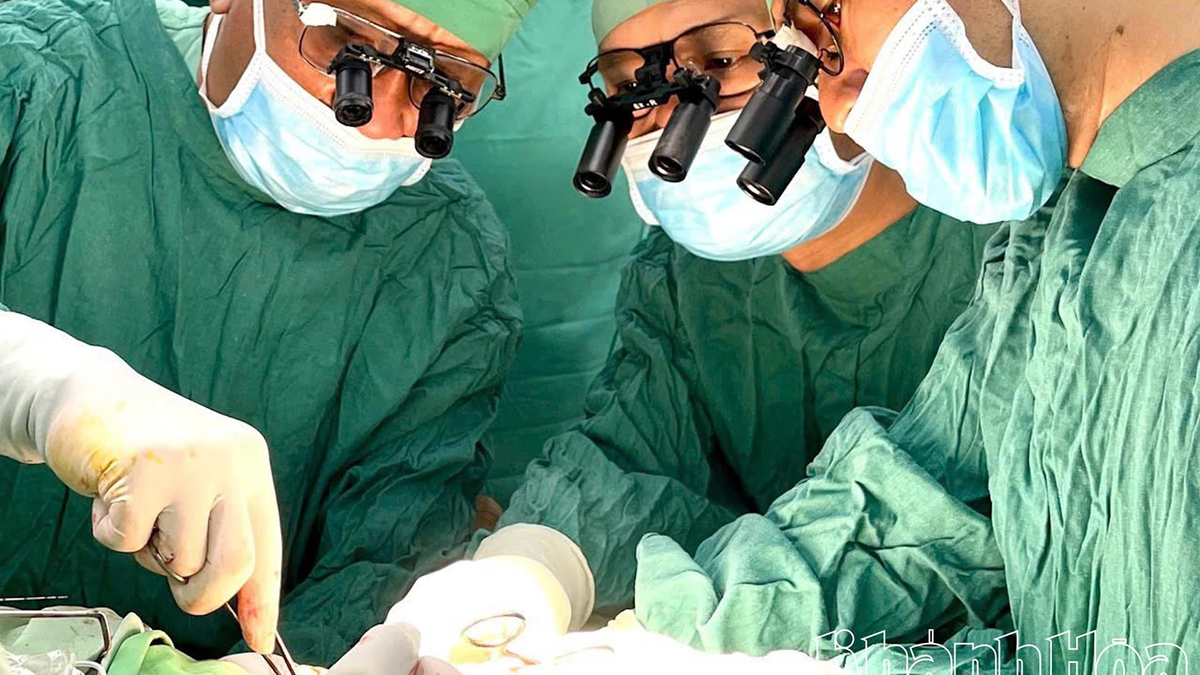Pregnant woman LVHN (28 years old, Hanoi ) is monitoring her pregnancy at Medlatec Thanh Xuan Clinic. Ms. N. is pregnant for the second time, with twins, 1 placenta, 1 amniotic sac.
At 16 weeks and 6 days pregnant, she came to Medlatec Thanh Xuan for a check-up with symptoms of rapid heartbeat all day long, sometimes with palpitations.
According to the previous examination results, this pregnancy is completely healthy, no abnormalities have been detected, and the expected date of birth is July 2, 2025. The first trimester preeclampsia screening test showed low risk. The family history also revealed nothing special.
The doctor ordered the patient to undergo some paraclinical techniques for diagnosis. Notably, the test results showed that the thyroid function indexes were abnormal, specifically the TSH index was below the detection threshold and the TSI was high.
The diagnosis was that the pregnant woman N. had Graves' disease on the basis of twins, at 16 weeks and 6 days of pregnancy. The doctor prescribed medication and closely monitored the patient's health. Currently, at 32 weeks of pregnancy, the patient's health has stabilized, with no more symptoms of rapid heartbeat and palpitations.
Graves' disease is a form of autoimmune hyperthyroidism that occurs when the immune system produces antibodies that stimulate the thyroid gland to produce too much hormone.
Master, Doctor Nguyen Quynh Xuan, Head of Endocrinology, Medlatec Healthcare System said that in pregnant women, there are many factors that can increase the risk of Graves' disease.
The first is the increase in HCG hormone during pregnancy. In the early stages of pregnancy, the baby has not yet formed a thyroid gland, so the mother's body will automatically increase thyroid hormone to supply the baby through the placenta. This process causes changes in some organs of the mother's body and can cause Graves' disease.
When the immune system is disrupted, it leads to overactive thyroid gland, causing Graves' disease. In addition, people with immune system disorders such as rheumatoid arthritis or type 1 diabetes... are at increased risk of Graves' disease in pregnant women.
In addition, more than 15% of Graves' disease cases are due to genetics from family members, thyroid infection. If there is any infection occurring near the thyroid gland, it will cause thyroid disorders and increase the hormone causing Graves' hyperthyroidism.
Too high iodine content in the body also stimulates increased hormone production that causes Graves' disease goiter during pregnancy.
Some common symptoms of Graves' disease in pregnant women include: Severe morning sickness; unusual weight loss or lack of weight gain despite not much change in diet; rapid heartbeat and rapid breathing, shortness of breath; always feeling hungry and eating a lot but not gaining weight for many months; increased sweating and less heat tolerance than before the disease;
Pregnant women may experience a lump in the neck, swelling, pain, or bulging eyes; anxiety, restlessness, fatigue, and difficulty sleeping; muscle tremors and weakness, and lack of energy; high blood pressure, blurred vision, frequent headaches, and nausea; and the thyroid gland may change in size and become abnormally enlarged during pregnancy.
Master, Doctor Nguyen Quynh Xuan commented that fortunately, the above pregnant woman was discovered and treated promptly. In reality, there are cases where late detection or non-compliance with treatment regimens can lead to serious consequences such as dangerous complications affecting the health and even threatening the lives of both mother and baby.
In fact, thyroid storm is dangerous to the health of pregnant women as well as a high risk of miscarriage.
Doctor Xuan recommends that women with Basedow's disease, if they are being treated, must be cured and should only get pregnant when they stop taking the medication. If they become pregnant during treatment, they must see a specialist for advice and appropriate medication.
Because this disease requires careful monitoring and regular adjustment of medication dosage during pregnancy, you need to follow your doctor's recommendations on medication dosage and follow-up time. In particular, pregnant women need to be screened for thyroid disease in the first 3 months of pregnancy.
Source: https://nhandan.vn/khong-chu-quan-khi-mac-benh-basedow-trong-thai-ky-post881108.html




















































![[Maritime News] More than 80% of global container shipping capacity is in the hands of MSC and major shipping alliances](https://vphoto.vietnam.vn/thumb/402x226/vietnam/resource/IMAGE/2025/7/16/6b4d586c984b4cbf8c5680352b9eaeb0)













































Comment (0)